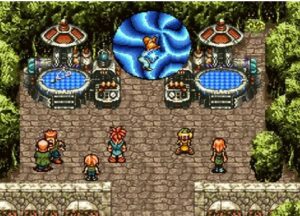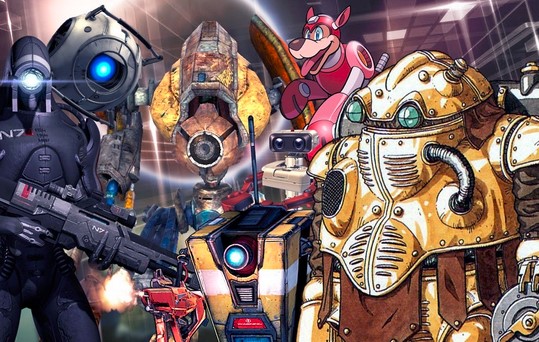Video games have been an integral part of our lives for decades, entertaining and captivating players across generations. While new games continually flood the market, some classics remain eternally beloved and relevant. In this article, we will explore the concept of timeless video games, their impact on the gaming industry, and the enduring appeal that keeps players returning to them.

What Makes a Video Game Timeless?
Timeless video games possess certain qualities that distinguish them from the average release. These qualities contribute to their enduring popularity:
- Innovation: Timeless games often introduce groundbreaking mechanics, technologies, or gameplay concepts that set new industry standards.
- Narrative Excellence: A compelling and immersive storyline can captivate players, leaving a lasting impact and encouraging replayability.
- Enduring Graphics: While cutting-edge graphics are essential for contemporary titles, games with art styles that age well can stand the test of time.
- Multiplayer Engagement: Titles that offer a robust multiplayer experience tend to remain popular as long as the servers are active.
- Cultural Impact: Some games become ingrained in pop culture, inspiring spin-offs, merchandise, and fan communities.
Timeless Video Game Examples
- Super Mario Bros. (1985): This classic platformer introduced the iconic plumber, Mario, and remains a symbol of video game culture.
- The Legend of Zelda: Ocarina of Time (1998): Its captivating story and groundbreaking 3D design earned it a place in the hearts of gamers.
- Tetris (1984): Simplicity and endless replayability have cemented Tetris as one of the most timeless games ever.
- The Elder Scrolls V: Skyrim (2011): Its vast open world and deep lore make it a game that players continue to revisit.
- Super Smash Bros. Melee (2001): The ultimate party game that has achieved legendary status in the competitive gaming community.
Impact on the Gaming Industry
Timeless games have a profound influence on the gaming industry in several ways:
- Legacy: They inspire developers to create future games with similar qualities, such as rich narratives and innovative gameplay.
- Remakes and Remasters: The enduring popularity of timeless games often leads to remakes or remasters to introduce the title to new generations of players with updated graphics and mechanics.
- Nostalgia: These games elicit strong feelings of nostalgia, which developers can leverage to create new content or merchandise.
- Genres and Trends: Timeless games often define entire genres or gaming trends that influence future titles.
- Game Preservation: Recognizing the historical importance of timeless games, the industry and preservationists work to ensure their continued availability for future generations.
Enduring Appeal
The appeal of timeless video games endures for various reasons:
- Nostalgia: These games transport players back to their youth or earlier gaming experiences, evoking feelings of nostalgia and fond memories.
- Simplicity: Many timeless games have straightforward mechanics that are easy to pick up, making them accessible to new players.
- Challenges: Their timeless challenge offers satisfaction when overcoming obstacles and mastering the game.
- Community: The communities and fan base around timeless games are often active and passionate, providing a social aspect to playing.
- Cultural Icons: Iconic characters and worlds become beloved and recognizable, like Mario or Link from The Legend of Zelda.
The Ongoing Relevance of Classic Games
While the gaming industry evolves, classic games continue to find new life and relevance through various means:
- Emulation: Emulators enable players to enjoy classic games on modern hardware.
- Re-Releases: Many classic games are re-released on platforms like Steam, GOG, or consoles, making them accessible to contemporary gamers.
- Fan-Made Mods: Fans often create mods and fan-made expansions for classic games, revitalizing interest.
- Collectibles: Vintage gaming merchandise and collectibles maintain the allure of classic titles.
- Community Events: Conventions, competitions, and online communities dedicated to classic games ensure their ongoing popularity.
Preservation of Timeless Games
The preservation of timeless games is a crucial effort in the gaming community. Many organizations and individuals work to ensure that classic titles remain available to future generations. This includes:
- Game Archives: Institutions like the Video Game History Foundation and the Strong National Museum of Play aim to archive and preserve games for historical and educational purposes.
- Emulation Projects: Emulation projects aim to create emulators and ROMs for classic games that are no longer in commercial production.
- Restoration Efforts: Preservationists work to restore old games and ensure they remain playable on modern systems.
- Re-Releases: Official re-releases on modern platforms help preserve timeless games and make them accessible to new players.
Conclusion
Timeless video games are a testament to the enduring power of interactive entertainment. They shape the gaming industry, foster nostalgia, and continue to captivate new generations of players. As classic games are preserved, remastered, and revisited, they serve as a bridge between the past and the future, demonstrating that great gameplay and storytelling never go out of style. In a world of constant technological evolution, these timeless titles are cherished artifacts of gaming history and cultural icons that continue to leave a lasting legacy in the digital realm.
